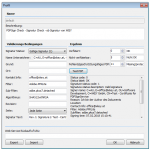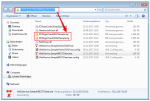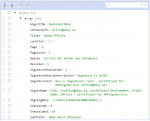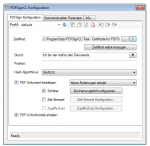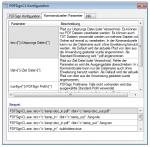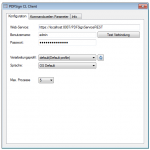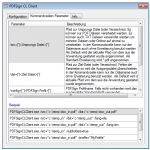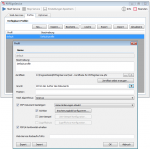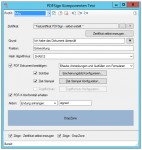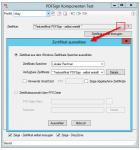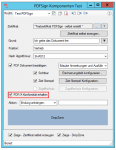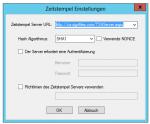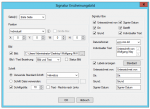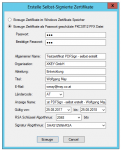PDFSignCheck – Check PDF signatures via web service (REST / SOAP)
PDFSignCheck – is a service which can be installed under MS Windows and which has a REST / SOAP web service interface to check signed PDF documents and to read out their signature parameters.
Scope – validation of electronic evidence:
In order to pay the customer for PDF invoices z.b. via a web application to give the opportunity to check whether an email sent as a PDF invoice really comes from your own company or to check whether the PDF document has not been changed or manipulated.
Using a valid PDF signature can ensure that the PDF document has not been tampered with, as any change invalidates the signature immediately.
With the help of the PDFSignCheck application, it can be checked whether the document / signature is valid and therefore unchanged and on the basis of the signature criteria stored on the PDFSignCheck server, it can also be checked whether the document was issued / signed by the company itself.
Definable criteria – AND shortcut for “Ok” / “not ok”
- Signature status (0 – unknown, 1 – valid signature, 2 – file can not be opened, 3 – PDF not signed, 5 – signature invalid, 6 – validity unknown)
- Issuer of the certificate / signer
- reason
- location
- ContactInfo
- Filter / Sub-Filter / algorithm
- Revision
- page
- Signature Text
processing flow:
PDFSignCheck is installed under MS Windows as a service and provides a REST / SOAP web service interface for other applications. PDF files are transmitted via the web service and checked using a PDFSignCheck profile stored on the server. As a result, a file is created in JSON format that can be downloaded and processed further. The JSON file contains information about the read signature as well as the result of the check (“Ok”, or “not ok”).
In addition to the service, two C # sample programs / VS projects – one for REST and one for SOAP incl. EXE and source code are installed. Thus, the PDFSignCheck service can be easily tested or show the examples of how the functions can be integrated into your own applications.
Notice:
- Root certificates and revocation lists are constantly updated, therefore the computer installed on the PDFSignCheck should also have an active internet connection.
- By default, PDFSignCheck runs as a Windows service under the “System Account”, the user interface for configuring the application under the logged-in user. Each user and the computer itself use their own memory for the certificates. In order to use the same certificate store, the same user account should be used for the service as the logged-on user with whom the configuration is performed.
Download – PDFSignCheck – PDF Signaturen prüfen über REST / SOAP >>>



